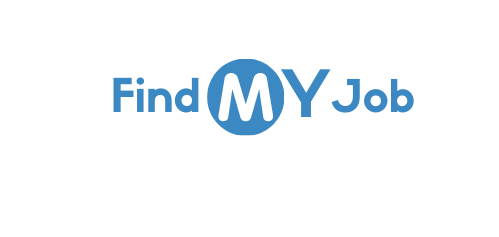Reasons Why It’s So Hard To Find a Job And How You Can Improve Your Odds
You may encounter some challenges when looking for a job. However, there are several ways to optimize your job search and succeed. In this article, we discuss why job searching can be so difficult and how you can overcome these obstacles.
Why is it so hard to find a job?
Here are some reasons why it can be difficult to find a job and how you can address them:
Companies may be hiring internally
Many jobs that employers post are not open exclusively to external applicants. When a company posts a job, it is usually available to employees within the company. The hiring company may consider a candidate it already knows to be more advantageous. An external applicant must make a strong first impression to be considered on equal footing with an internal applicant.
Many positions are never advertised publicly
Many available positions may not be posted on public job boards. Instead, managers of these positions prefer to fill the position through recruiters or employee referrals. By expanding your job search methods, you can uncover a greater number of jobs that interest you. For example, you could contact recruiters to find out if there are openings in your field.
Positions are highly competitive
A single job posting may receive hundreds of applications. For an application to be successful, it must attract the employer’s attention. A large number of applications may mean that an employer has little time to spend reading through the application materials. Submitting a strong resume can pique an employer’s interest.
How to improve your chances of finding a job
The first step to overcoming hurdles in the job market is understanding the obstacles you face. Follow these steps to improve your chances of success:
- Keep your resume current and tailored to the position.
Make sure your resume is well organized and readable. When applying for a job, tailor each application you send to the desired skills listed in the job posting. This is especially important if you are submitting your resume through an electronic portal. Many employers use Applicant Tracking Systems technology, which scans your resume and looks for keywords that match the job posting.
Depending on how this software detects that your resume matches the employer’s requirements, it then decides whether to forward your resume to the hiring manager. Matching your resume to the job posting can help the ATS see that your qualifications match. To maximize the effectiveness of your resume, try the following:
Modify the “Skills” section of your resume to reflect the keywords from the job posting. If a job posting seems to focus on specific skills or attributes, it’s helpful to include them in the text of your resume and cover letter.
Keep the layout of your resume simple and readable. Choose a resume format and style that employers can read quickly. Consider asking someone to review your resume so you can get an idea of how someone else might see it.
Keep the wording of your resume short and concise. To fill your resume with relevant information, try to keep the content simple and straightforward. This will help an employer understand what skills you have.
- Use and expand your connections.
Who you know can be a deciding factor when it comes to finding great opportunities, especially those not found on public job boards. Social media can be a great tool when it comes to seeing what your connections can offer you. Job fairs or networking events can be beneficial for meeting new people in an industry and learning about opportunities. Expanding your network will only help you in your job search. To accomplish this, consider the following steps:
Ask friends and family if they know of any hiring opportunities. Having a person connect you to a potential opportunity can increase your chances of getting the job. A mutual connection between you and an employer can help you stand out from other applicants during the hiring process.
Attend job fairs and similar events that interest you. Search online for job fairs and events in your area. Some events offer a wide range of employers from different industries, while others specialize in a single industry. Attending one of these events can lead to you making a connection that will show you a new opportunity.
Contact an established person in an industry and ask them a meaningful question. If you are looking for a job in a specific industry, look for successful people in that field. Consider approaching someone to introduce yourself and ask a genuine, thoughtful question. Most people rarely receive this type of correspondence, so you have the opportunity to make a strong, memorable impression.
- Follow up with potential employers.
Once you’ve connected with an employer and received an interview, it’s a good idea to discuss the next steps. Once you’ve made an impression, you want to be remembered when the next phase of the hiring process begins.
Contacting a hiring manager directly can seem intimidating, but it’s often an expected part of the application process. Following up gives you the opportunity to make an even better impression and increase your chances of success. Take the following steps to follow up effectively:
Get in touch one to two weeks after applying to introduce yourself in person. The initial application intake process can take some time before employers move to the next step. If you have not heard back one to two weeks after submitting an application, you should contact the hiring manager to introduce yourself in person. This may prompt a manager to look for your resume among other applications.
Send a thank you email after each interview. Corresponding directly with an employer during the hiring process can make you memorable. Sending a thank you email the same day after an interview is a professional gesture that shows appreciation and continued interest in the opportunity.
Be mindful of the employer’s schedule when following up. During the interview, ask when you can expect to hear back about next steps in the hiring process. Sometimes employers don’t get back to you within the timeframe you expect. If this is the case, wait two or three business days before sending a follow-up email asking how to proceed.
Looking to make a career change or start a new job? Try FindMyJob.lk today to find the perfect job you dream of.







